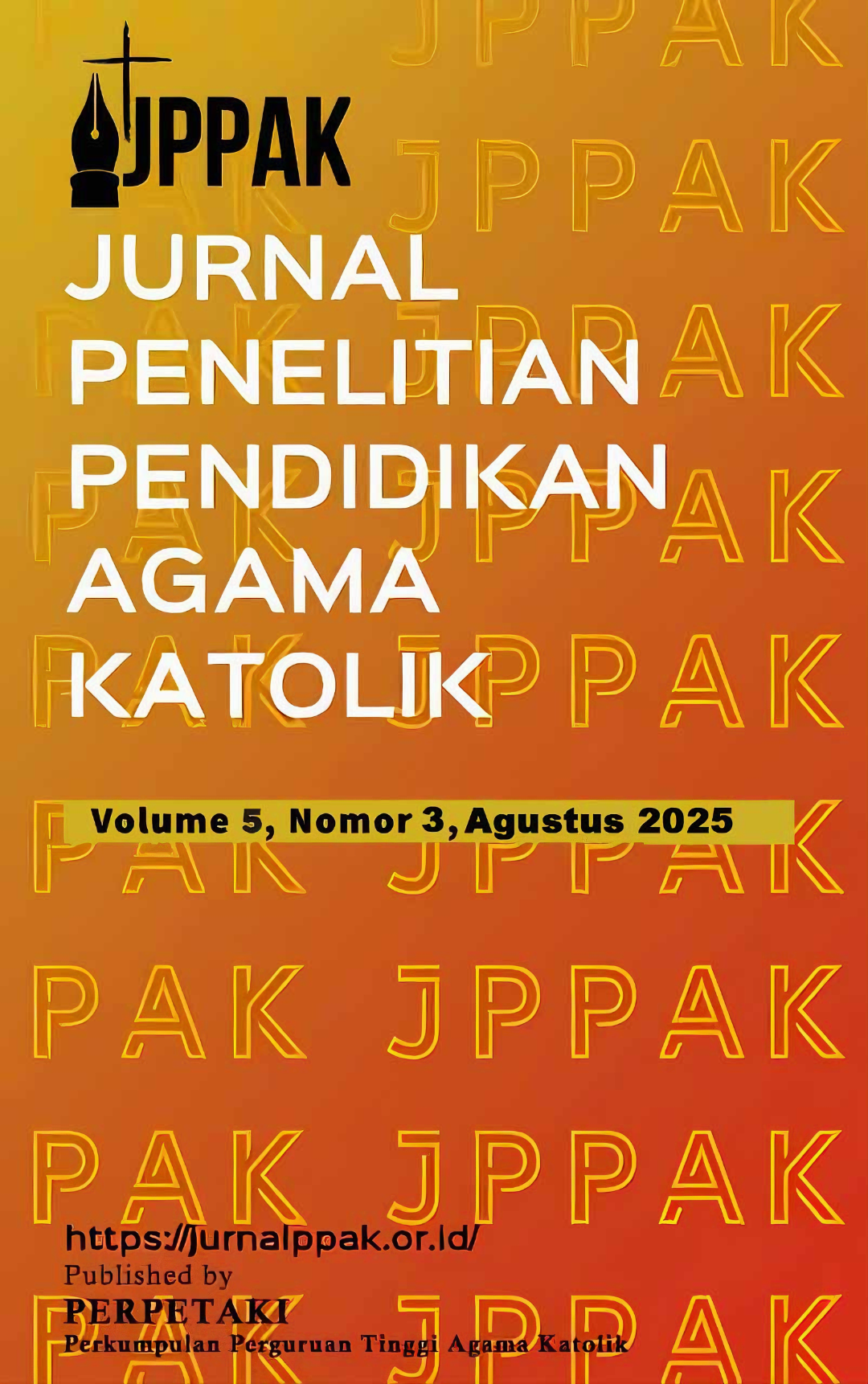Analisis Efektivitas Pembinaan Iman Anak Menggunakan Model CIPP (Context, Input, Process, Product) di Stasi Santo Yakobus Paroki Santo Padre Pio Helvetia
DOI:
https://doi.org/10.52110/jppak.v5i3.350Keywords:
Pembinaan iman, efektivitas, model CIPP, pendidikan katolik, anakAbstract
The present study aims to analyse the effectiveness of children's faith formation in Stasi Santo Yakobus Sukadono, Paroki Santo Padre Pio Helvetia, by using the CIPP (Context, Input, Process, Product) evaluation model. The present research employs a qualitative approach, utilising triangulation techniques in the form of observation, interviews, and documentation. The context component underscores the congruence between the program's objectives and the Church's vision, while also addressing the needs of the local community. The input aspect of the evaluation process encompasses the quality of the coaching staff, the availability of facilities and infrastructure, as well as the involvement of parents and dewan pastoral stasi. The process component focuses on the consistency of implementation and the methods used, including participatory approaches and liturgical activities. The product aspect of the programme has been found to engender an enhancement in spirituality, moral character, and active involvement of children in church life. The results indicate that the programme of faith formation has been effective, is pertinent to the contemporary context, and exerts a significant influence on the development of children's faith. Nevertheless, there is a necessity for the enhancement of coaching education, the more effective utilisation of digital media, and a deeperening of the collaboration between the Church and the family. It is anticipated that these findings will serve as a valuable contribution to the development of contextual and holistic faith education within the Catholic Church.
Downloads
##submission.downloads##
Submitted
Accepted
Published
How to Cite
Issue
Section
License
Copyright (c) 2025 Angelina Sijabat, Petrus Simarmata

This work is licensed under a Creative Commons Attribution-ShareAlike 4.0 International License.
Copyright Notice and Permissions
Jurnal Penelitian Pendidikan Agama Katolik offers immediate open access to all its content on the principle to make researches freely available to the public, especially to the scholars, to support greater global exchanges of knowledge. This journal encourages all scholarly authors to allow their research openly available, free access and without time restrictions.
All articles published Open Access will be immediately and permanently free for everyone to read and download. Under the CC BY-SA 4.0 license, authors retain ownership of the copyright for their article, however authors grant others permission to use the content of publications in Jurnal Penelitian Pendidikan Agama Katolik (JPPAK) in whole or in part provided that the original work is properly cited. Users (redistributors) of Jurnal Penelitian Pendidikan Agama Katolik (JPPAK) are required to cite the original source by including at least: the full title of the article, the author's or authors' full name(s), JPPAK as the initial source of publication, year of publication and volume number using a propriate citing method.
Copyright encompasses exclusive rights to reproduce and deliver the article in all form and media, including reprints, photographs, microfilms and any other similar reproductions, as well as translations. The reproduction of any part of this journal, its storage in databases and its transmission by any form or media, such as electronic, electrostatic and mechanical copies, photocopies, recordings, magnetic media is prohibited without consent of Jurnal Penelitian Pendidikan Agama Katolik (JPPAK).
Jurnal Penelitian Pendidikan Agama Katolik (JPPAK) is licensed under a Creative Commons Attribution Share-Alike 4.0 International. (CC BY-SA 4.0)
Authors who publish with Jurnal Penelitian Pendidikan Agama Katolik (JPPAK) agree to the following terms:
- Authors retain copyright and grant the journal right of first publication with the work simultaneously licensed under a Creative Commons Attribution Share-Alike 4.0 International (CC BY-SA 4.0) license that allows others to share the work with an acknowledgement of the work's authorship and initial publication in this journal.
- Authors are able to enter into separate, additional contractual arrangements for the non-exclusive distribution of the journal's published version of the work (e.g., post it to an institutional repository or publish it in a book), with an acknowledgement of its initial publication in this journal.
- Authors are permitted and encouraged to post their work online (e.g., in institutional repositories or on their website) after the publication on JPPAK, as long as it not published on other OJS for it will be treated as plagiarism by plagiarism checker apps. It can lead to productive exchanges, as well as earlier and greater citation of published work (See The Effect of Open Access).












